Results
-
 £89.99
£89.9911th Of September - Ben Haemhouts
No one will ever forget this terrible day, during which two aircraft crashed into the WTC in New York. This choir piece is not a political gesture, but a tribute to all the victims and their surviving relatives.
Estimated dispatch 7-14 working days
-
 £64.99
£64.99September - Al McKay
Recorded by Earth, Wind & Fire and often heard in TV and films, this classic funk tune from the '70s is a sure way to pump some energy into your next program. The melody is skillfully passed from section to section, making this a fun arrangement for everyone to play and enjoy.
Estimated dispatch 7-14 working days
-
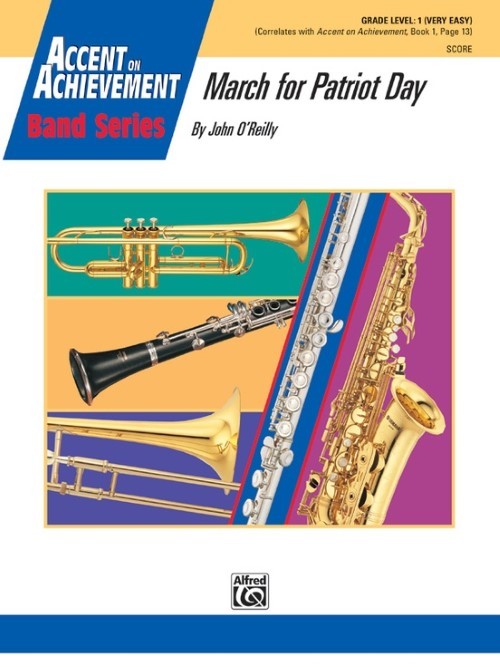 £45.95
£45.95March for Patriot Day (Concert Band - Score and Parts) - O'Reilly, John
Patriot Day occurs on September 11 of each year in memory of the 2,977 people who died in the terrorist attacks of September 11, 2001. This march, which was actually written on Patriot Day 2011, is the perfect vehicle for beginning band students to express their patriotism. Using only the first seven notes taught in most beginning method books, rhythmic interest is provided by various combinations of repeated-pitch eighth note patterns.Duration: 1:30
Estimated dispatch 7-14 working days
-
£74.95
Sonata for Clarinet No.2 in Eb - Score and Parts - Johannes Brahms
This clarinet sonata was composed in 1894 for clarinetist Richard Mu?hlfeld. This was an interesting time in Brahms' life as he vowed he would retire from composing in 1890 but after he heard a performance of the Weber clarinet concerto No.1 and the Mozart clarinet quintet he so admired the soloist that he felt he should come out of retirement and compose 2 clarinet sonatas for him. These were completed in 1894 and first performed in a private concert in September of that year. These 2 sonatas were the last chamber pieces he composed before his death.
Estimated dispatch 7-14 working days
-
£14.95
Sonata for Clarinet No.2 in Eb - Score only - Johannes Brahms
This clarinet sonata was composed in 1894 for clarinetist Richard Mu?hlfeld. This was an interesting time in Brahms' life as he vowed he would retire from composing in 1890 but after he heard a performance of the Weber clarinet concerto No.1 and the Mozart clarinet quintet he so admired the soloist that he felt he should come out of retirement and compose 2 clarinet sonatas for him. These were completed in 1894 and first performed in a private concert in September of that year. These 2 sonatas were the last chamber pieces he composed before his death.
Estimated dispatch 7-14 working days
-
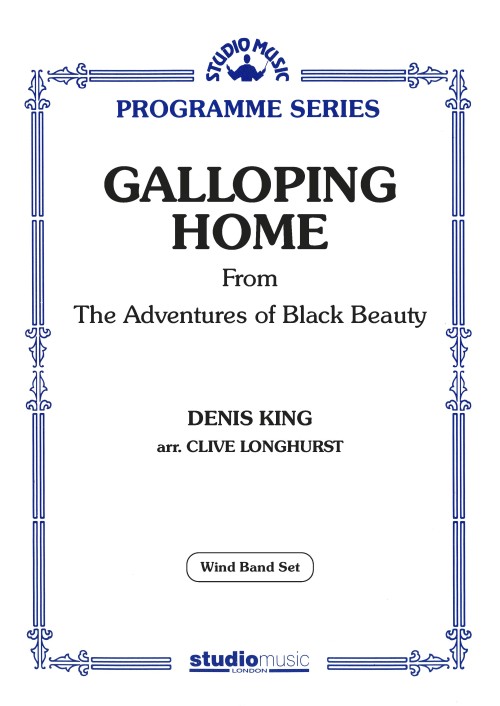 £87.95
£87.95Galloping Home (Concert Band - Score and Parts) - King, Denis - Longhurst, Clive
Galloping Home is the name of the theme tune to the popular 1970's TV programme, 'The Adventures of Black Beauty'. The children's show ran between September 1972 to March 1973 and became a 'must watch' in the UK and the USA. It is hoped that this transcription will evoke many happy memories for those who used to watch it and be enjoyed by those who are not so familiar.
Estimated dispatch 7-14 working days
-
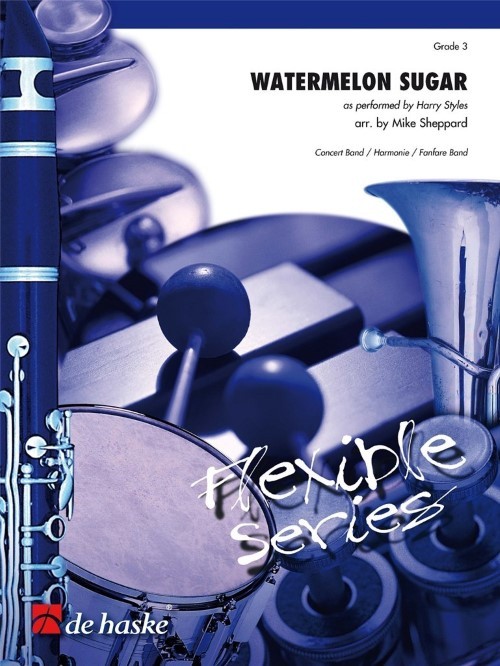 £69.99
£69.99Watermelon Sugar (Flexible Ensemble - Score and Parts) - Sheppard, Mike
Watermelon Sugar was the summer hit of the year 2020. It is a song by the British singer-songwriter Harry Styles, who felt inspired by the title of the American novel In Watermelon Sugar (1968) by Richard Brautigan. The melody of the chorus had already taken form during 'Live on Tour', the debut tour that Styles embarked on in September 2017, finishing in July the following year. On a free day, Harry and his band went to The Cave Studio in Nashville, where they created the chorus melody. It is said that the song is about Styles' ex-girlfriend Camille Rowe. Mike Sheppard arranged this catchy tune for a flexible (six-part) ensemble as a lasting memory of the extraordinary year 2020. Duration: 3.00
Estimated dispatch 7-14 working days
-
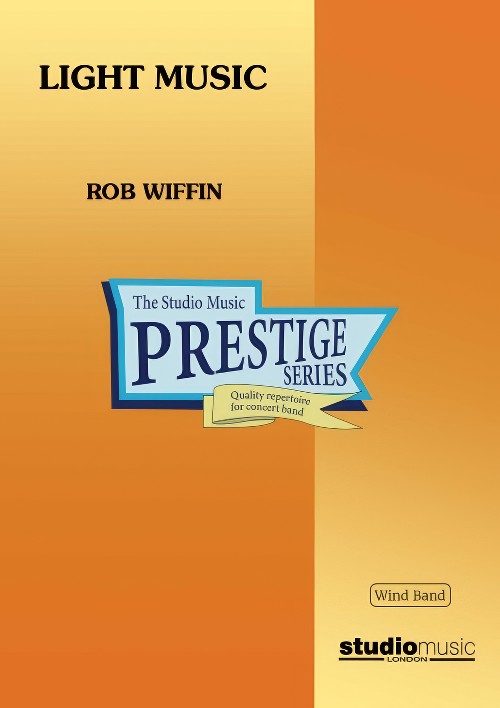 £27.95
£27.95Light Music (Concert Band - Score only) - Wiffin, Rob
The title Light Music alludes to different things. Most of the music in the suite is light in nature, and is in the inherently British tradition of 'light music' - original pieces which are often descriptive but essentially melodic. In another sense the music depicts various aspects of light itself. The title itself is a trick of the light!The first movement, Lightscape, portrays shifting patterns and types of light, highlighting some details and obscuring others. It is sometimes vibrant, dancing and full of movement, and sometimes tranquil.The second movement, At the going down of the sun, considers the light of the sun as it sets. Because of the nature of his career, the composer has written a fair amount of ceremonial music and this movement is close to that genre once again. There is, in the title, a reference to the familiar Remembrance line 'At the going down of the sun and in the morning we will remember them' from the poem For the Fallen by Robert Laurence Binyon (1869-1943) written in September 1914, a few weeks after the outbreak of the First World War. While the music is not a setting of these words - or in any way referential - there is an echo of the words 'We will remember them'.The suite finishes with Set Alight which starts off with a few combustible bars as the flame catches and then the fire is under way.Duration: 11.30
Estimated dispatch 7-14 working days
-
 £137.95
£137.95Light Music (Concert Band - Score and Parts) - Wiffin, Rob
The title Light Music alludes to different things. Most of the music in the suite is light in nature, and is in the inherently British tradition of 'light music' - original pieces which are often descriptive but essentially melodic. In another sense the music depicts various aspects of light itself. The title itself is a trick of the light!The first movement, Lightscape, portrays shifting patterns and types of light, highlighting some details and obscuring others. It is sometimes vibrant, dancing and full of movement, and sometimes tranquil.The second movement, At the going down of the sun, considers the light of the sun as it sets. Because of the nature of his career, the composer has written a fair amount of ceremonial music and this movement is close to that genre once again. There is, in the title, a reference to the familiar Remembrance line 'At the going down of the sun and in the morning we will remember them' from the poem For the Fallen by Robert Laurence Binyon (1869-1943) written in September 1914, a few weeks after the outbreak of the First World War. While the music is not a setting of these words - or in any way referential - there is an echo of the words 'We will remember them'.The suite finishes with Set Alight which starts off with a few combustible bars as the flame catches and then the fire is under way.Duration: 11.30
Estimated dispatch 7-14 working days
-
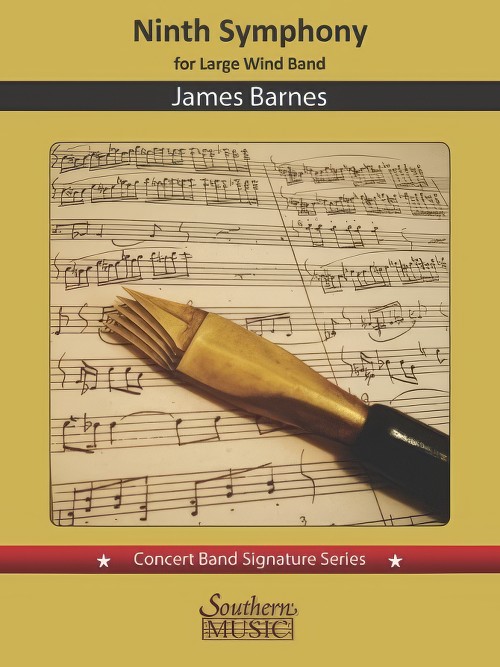 £309.99
£309.99Ninth Symphony (Concert Band - Score and Parts) - Barnes, James
Premiered on 21 September, 2018 in Lawrence, Kansas by The University of Kansas Wind Ensemble (Dr. Paul Popiel, conducting), James Barnes' Ninth Symphony was composed between January and late June of that same year. This large work was commissioned by a consortium of twenty-one college bands, community bands, professional bands and individuals to help mark the 70th birthday of the composer (b. 1949). It is an expansive forty-minute work in four movements, of which the composer writes, "This is my last symphony...this work represents a compendium of all that I have learned during the fifty years of composing and scoring for this wonderful new medium: the modern wind band." The first movement, subtitled Elegy, is based around G minor. It is the longest movement of the symphony. Tragic and despondent in character, it is cast in sonata-allegro form. The second movement is entitled Scherzo. Barnes claims that "I have always wanted to write a waltz," and that is how this movement is cast, in a modified rondo form in D minor. In contrast to the mood of the first movement, the scherzo is a delightful posy of expansive melody, splashy color, humor and rhythm. The third movement, which is in a modified tertiary form, is entitled Night Music. In contrast to the scherzo, this movement begins with a mysterious incantation, first displayed by solo Alto Flute. The music becomes even darker and more mysterious, while overall the movement effectively expresses an "otherworldly" mood, ending with a solo soprano offstage which suddenly emerges, eerily singing a modified version of the opening incantation. Cast in sonata-allegro form, the fourth movement is most definitely a rousing Finale, beginning with a brilliant fanfare and undergoing several mood transformations before emerging into the final coda, ending the symphony with an energetic splash of color. Duration: 40.00
Estimated dispatch 7-14 working days
